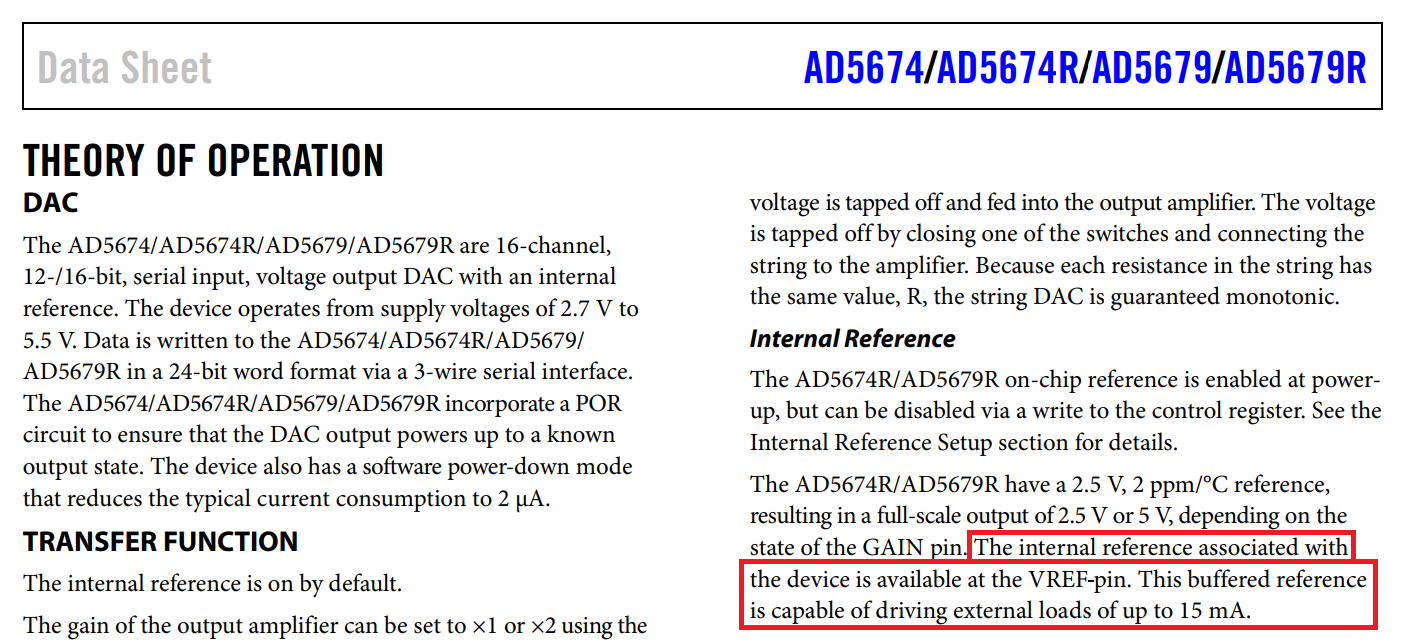I'm designing a circuit using the AD567XX (datasheet) family of Digital to Analog Converters.
I'm confused by the Reference Voltage Pin (Pin 21). It seems that one of the distinctions between different chips in the family (ie: AD5674 vs AD5674R) is whether or not the voltage reference is external or internal.
As best I understand, the reference voltage is the voltage by which DACs and ADCs use against which to compare analog signals coming in and out of the IC, and an external reference means that VREF needs to be provided to that pin whereas an internal reference means that VREF will just appear at that pin due to internal circuitry on a given ADC or DAC.
My question is: why bother having an internal reference? External references make sense to me because you might want to optimize performance by using a voltage regulator and external circuitry to ensure the DAC/ADC has a precise/accurate VREF. But the internal reference doesn't do anything? It just makes VREF appear at the pin, regardless of what's on the other side, so what's the point? Is the circuit designer (me) supposed to put something on the other end of that pin? Can I leave it unconnected and use the digital programmable bit to turn it off? Any explanation would be greatly appreciated!!

